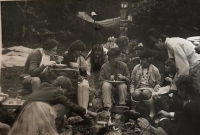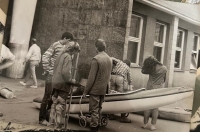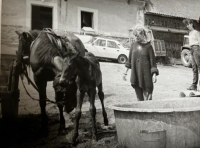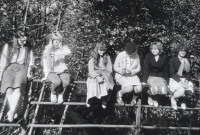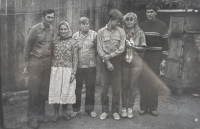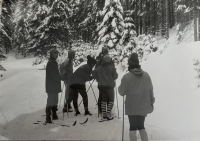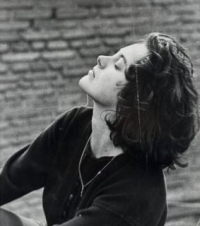The police used to disperse us with water cannons, I went to all the demonstrations
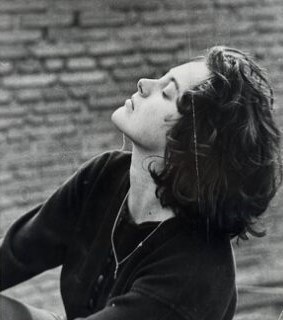
Download image
Dagmar Pavlíková, née Jindrová, was born on 27 July 1969 in Pilsen. Her mother was retired on disability, her father was a carpenter and a member of the Communist Party. Her maternal grandmother led her to anti-regime views and gave her samizdat literature to read while studying at university. Dagmar Pavlíková attended the Jirásek Primary School in Pilsen. She was a member of Pionýr and later led it herself. She graduated from the Secondary Medical School in Pilsen, majoring in laboratory science. In 1988 she started studying at the Faculty of Hygiene in Prague. During her studies at the university she became more interested in political events and the communist regime in Czechoslovakia. She participated in almost all demonstrations against the communist regime. On 17 November 1989, together with her classmates, she took part in the demonstration that started the Velvet Revolution. After the revolution, she interrupted her studies and travelled abroad. After her return, she studied pedagogy in Prague and currently (2024) teaches at the Church High School. In 2024 she lived in Pilsen.
